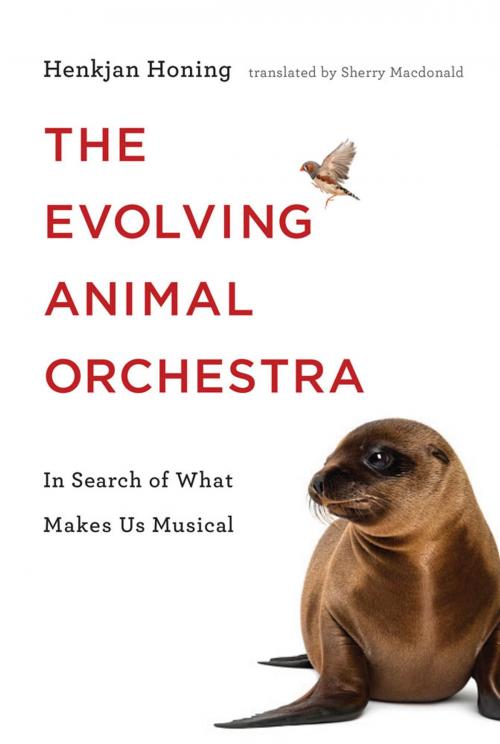The Evolving Animal Orchestra
In Search of What Makes Us Musical
Nonfiction, Science & Nature, Science, Biological Sciences, Evolution, Health & Well Being, Psychology, Cognitive Psychology| Author: | Henkjan Honing | ISBN: | 9780262351164 |
| Publisher: | The MIT Press | Publication: | February 8, 2019 |
| Imprint: | The MIT Press | Language: | English |
| Author: | Henkjan Honing |
| ISBN: | 9780262351164 |
| Publisher: | The MIT Press |
| Publication: | February 8, 2019 |
| Imprint: | The MIT Press |
| Language: | English |
A music researcher's quest to discover other musical species.
Even those of us who can't play a musical instrument or lack a sense of rhythm can perceive and enjoy music. Research shows that all humans possess the trait of musicality. We are a musical species—but are we the only musical species? Is our musical predisposition unique, like our linguistic ability? In The Evolving Animal Orchestra, Henkjan Honing embarks upon a quest to discover if humans share the trait of musicality with other animals.
Charles Darwin believed that musicality was a capacity of all animals, human and nonhuman, with a clear biological basis. Taking this as his starting point, Honing—a music cognition researcher—visits a series of biological research centers to observe the ways that animals respond to music. He has studied scientists' accounts of Snowball, the cockatoo who could dance to a musical beat, and of Ronan, the sea lion, who was trained to move her head to a beat. Now Honing will be able to make his own observations.
Honing tests a rhesus monkey for beat perception via an EEG; performs a listening experiment with zebra finches; considers why birds sing, and if they intend their songs to be musical; explains why many animals have perfect pitch; and watches marine mammals respond to sounds. He reports on the unforeseen twists and turns, doubts, and oversights that are a part of any scientific research—and which point to as many questions as answers. But, as he shows us, science is closing in on the biological and evolutionary source of our musicality.
A music researcher's quest to discover other musical species.
Even those of us who can't play a musical instrument or lack a sense of rhythm can perceive and enjoy music. Research shows that all humans possess the trait of musicality. We are a musical species—but are we the only musical species? Is our musical predisposition unique, like our linguistic ability? In The Evolving Animal Orchestra, Henkjan Honing embarks upon a quest to discover if humans share the trait of musicality with other animals.
Charles Darwin believed that musicality was a capacity of all animals, human and nonhuman, with a clear biological basis. Taking this as his starting point, Honing—a music cognition researcher—visits a series of biological research centers to observe the ways that animals respond to music. He has studied scientists' accounts of Snowball, the cockatoo who could dance to a musical beat, and of Ronan, the sea lion, who was trained to move her head to a beat. Now Honing will be able to make his own observations.
Honing tests a rhesus monkey for beat perception via an EEG; performs a listening experiment with zebra finches; considers why birds sing, and if they intend their songs to be musical; explains why many animals have perfect pitch; and watches marine mammals respond to sounds. He reports on the unforeseen twists and turns, doubts, and oversights that are a part of any scientific research—and which point to as many questions as answers. But, as he shows us, science is closing in on the biological and evolutionary source of our musicality.















